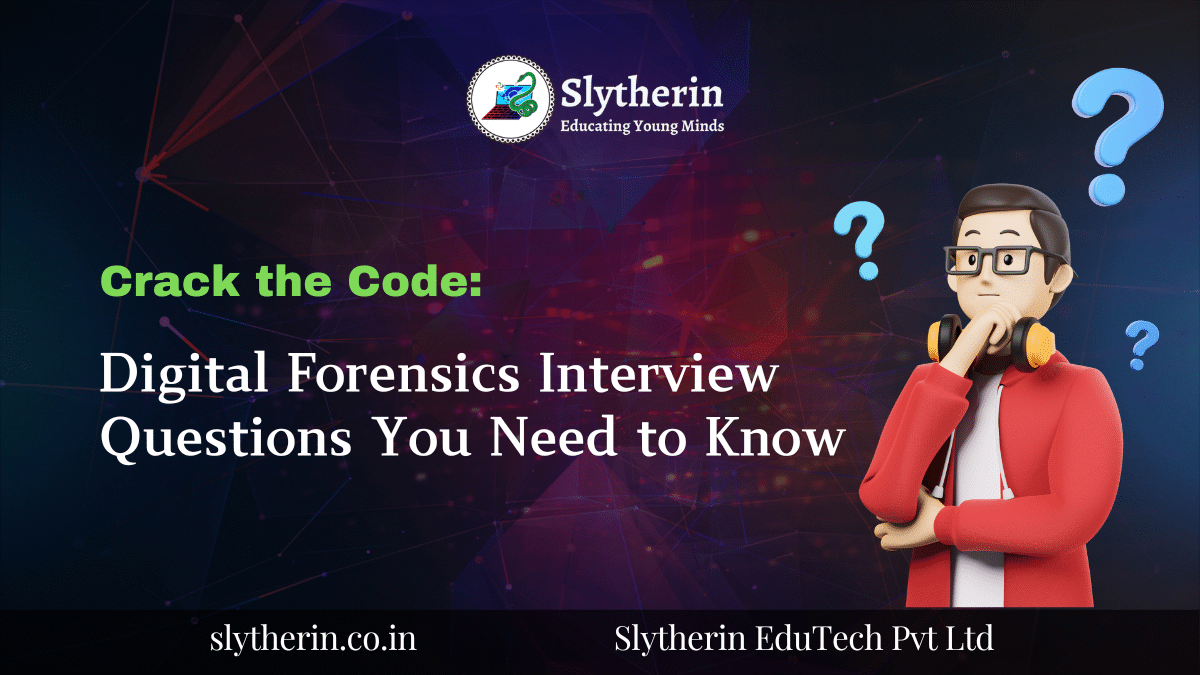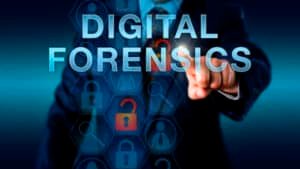Introduction
Cybersecurity experts in the field of digital forensics must possess a thorough understanding of digital systems, data recovery, and investigative methods. It’s crucial to get ready for interview questions that can highlight your knowledge and abilities if you want to work in this fascinating industry. In order to help you impress your potential employers, we’ll go over some frequently asked interview questions in the field of digital forensics in this post.
What is Digital Forensics?
Let’s first take a quick look at what digital forensics is before getting into the interview questions. Finding and analyzing electronic data for use in a court of law is the process known as “digital forensics.” Gathering, storing, and evaluating digital evidence is necessary to look into and piece together historical events. Cybercrimes, theft of intellectual property, and other offences involving digital technology are solved in large part by experts in digital forensics.
Digital Forensics Interview Questions
1. What role does digital forensics play in cybersecurity?
This test is meant to gauge how well you understand how digital forensics works to both prevent and investigate cybercrimes. Emphasize the value of digital evidence in locating and comprehending attackers, as well as in fortifying cybersecurity defense.
2. What stages go into a normal digital forensics investigation?
Explain the processes, such as identifying, preserving, gathering, checking, analyzing, and recording digital evidence. Stress the significance of preserving the evidence’s integrity at every stage of the procedure.
3. How can digital evidence be kept intact throughout an investigation?
Talk about methods for ensuring the integrity of digital evidence, such as write blockers, preserving the chain of custody, and recording each stage of the investigation.
4. Which devices and tools are necessary for a professional in digital forensics?
Mention well-known resources like FTK, Sleuth Kit, and Encase and talk about how they can be used to gather and examine digital evidence. If applicable, highlight your experience using these tools.
5. Can you explain the difference between volatile and non-volatile data?
Define volatile data as information that is transient and lost when the system is turned off, like RAM, and non-volatile data as information that is persistent and stays on the hard drive even after the system is turned off, like the contents of the hard drive.
6. How do you stay updated with the latest trends and developments in digital forensics?
Mention the following as methods to keep up to date on the newest developments in digital forensics: reading trade journals, attending conferences, webinars, and workshops, and taking part in online forums and communities.
7. Can you discuss a challenging digital forensics case you worked on?
Describe a situation in which you encountered major obstacles and how you overcome them. Stress your ability to work under pressure, pay attention to detail, and solve problems.
Conclusion
It’s important to prepare for a digital forensics interview by being well-versed in investigative methods, digital systems, and effective communication. You’ll be well-prepared to WOW prospective employers and land your ideal job in digital forensics by becoming familiar with these frequently asked interview questions and developing intelligent answers.



